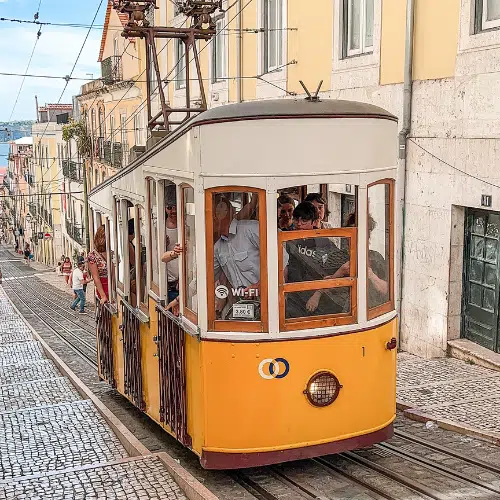9 Things to Know Before Visiting Portugal
Portugal is a very popular destination at the moment. Maybe you’ve seen a friend visit or you yourself already have a trip planned. I just spent nine days in Portugal and had a fantastic time, but there are some things you should know before you arrive to optimize your trip.
This post may contain affiliate links, which means I’ll receive a commission if you purchase through my link, at no extra cost to you.
Portugal is a Pretty Inexpensive Country to Visit
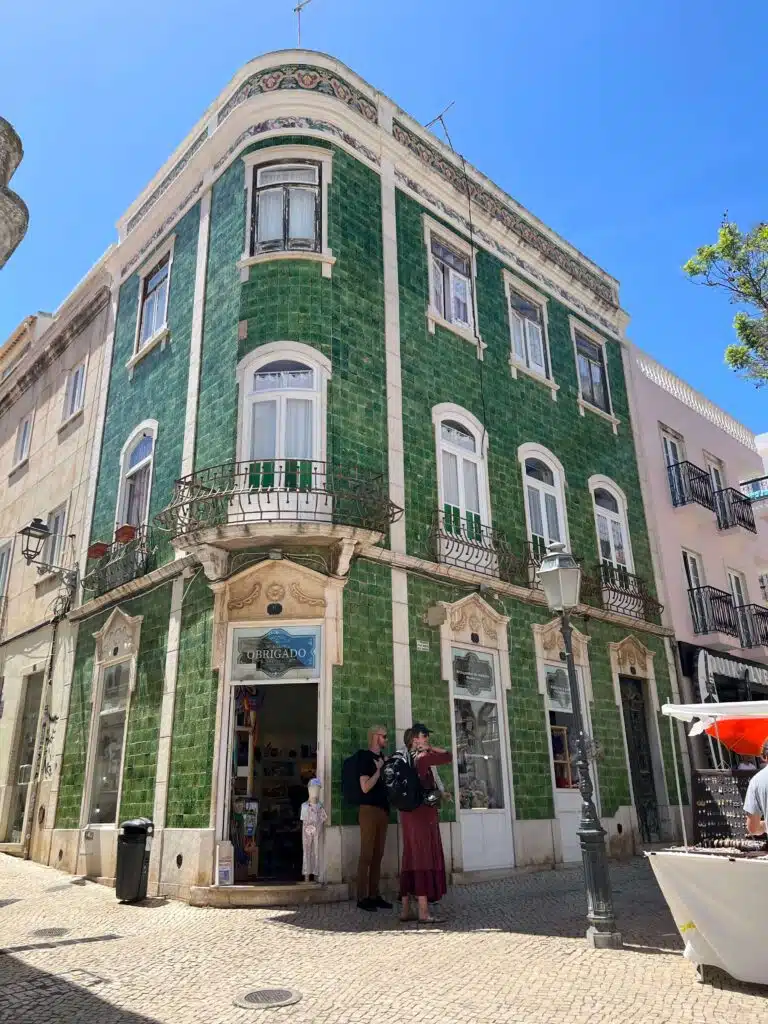
“Inexpensive” is a relative term, but when compared to the United States or other Western European countries, Portugal is cheap. On our first day in Lisbon, we only spent $107/person including accommodations (click here for the full breakdown of costs).
The more touristy areas will have inflated prices for food, but if you venture out a bit, you can get a good meal for a great cost.
The reasons Portugal is so inexpensive to visit are nuanced, but there are a couple of primary factors. For one, Portugal has historically always been a poorer country and they don’t have much in the way of major industries. Secondly, the government only started pushing tourism hard in the past couple of decades. The country’s primary airline, TAP Air Portugal, has increased the number of cities it flies to in the US, making it more accessible for Americans. Plus, it’s a lower cost carrier, so flights can be pretty inexpensive.
The one thing we noticed was noticeably more expensive than the United States was gas. We rented a car for the last 4 days of our trip and drove from Lisbon to the Algarve region to Seville, Spain and back. Gas came out to over $6/gallon! This is largely due to the war in Ukraine limiting the supply of gas to Western Europe.
[RELATED: How to make your first trip to Lisbon memorable]
Pasteis de Natas are the Perfect Portuguese Treat at Any Time of Day

Pasteis de natas are THE signature treat in Lisbon. They are an egg custard tart that is best served warm and topped with cinnamon. The taste was surprisingly similar to a churro and I loved these so much I had 1-2 every day in Lisbon.
Pasteis de natas were originally created by nuns in the monastery of Belem over 300 years ago (the exact date is disputed by various sources). Their originally recipe is still used and sold at Pasteis de Belem, however they aren’t the best ones you can get in Lisbon. Instead, check out Fábrica da Nata or Manteigaria, the latter of which is a chain found throughout the city.
Our guide from our food tour warned that pasteis de natas are very subpar in other parts of the country. I didn’t want to ruin my memory of these amazing treats and literally leave a bad taste in my mouth so I heeded her advice and didn’t eat any when we were in Algarve.
English is Widely Spoken Throughout Portugal
For a country that hasn’t historically had as much of a focus on tourism compared others in Western Europe, I was surprised at how widely English was spoken wherever we went. A guide we had explained that Portugal is one of the only European countries that doesn’t dub TV shows, so they watch American and British TV in English. Furthermore, they are taught English in school K-12.
One of our guides was born and raised in Lisbon and admitted she could not give her tour just in Portuguese because so many English words and phrases are intertwined into daily dialogue in Portugal.
While it’s common for people to speak English in major cities, we found our English to be easily understood and even in small towns. If the language barrier is a big concern for you when traveling, planning a trip to Portugal can suit you well.
People Try to Sell Fake Drugs to Tourists in Lisbon
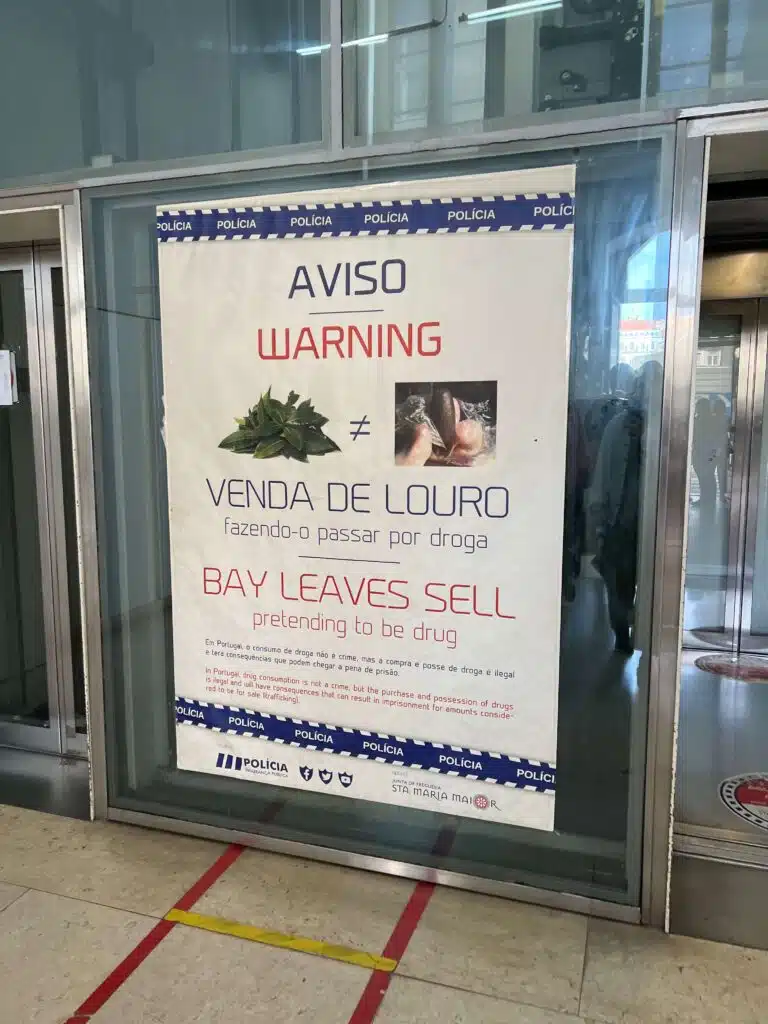
In our 5 days in Lisbon, Thomas was approached no less than 10 times and offered illicit substances. I want to emphasize no one ever came up to me specifically, only Thomas. So, I assume they tend to target male tourists. Thankfully, they were not pushy or aggressive and would generally go away with a simple “no” or shake of the head.
We later learned that the goods being sold are counterfeit and are simply baby powder and bay leaves. Thus, because these aren’t technically illegal, the police can’t stop these people from trying to scam tourists. It was most prevalent in major tourist areas and only occurred in Lisbon, not when we were in the south of Portugal.
Portugal is Big for Wine, Cork, and Fish
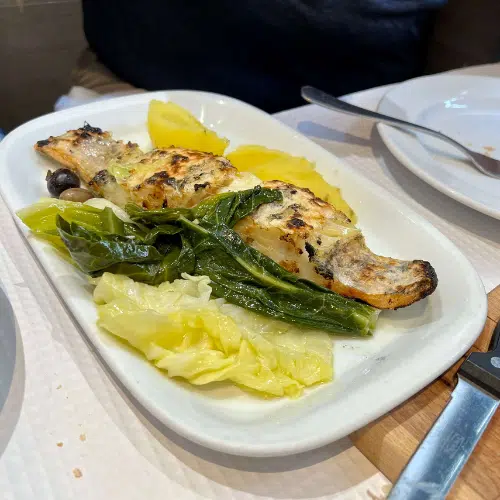
If you love wine, Portugal has a lot to offer. Most iconic is Porto wine, which is like Champagne in that it can only be called Porto wine if it comes from the Alto Douro Region (otherwise it may be referred to as Port). Vino verde is also a very popular wine in the country – it’s a delicious, easy drinking white (not actually green as the name would suggest!).
Beyond grapes, cork is also grown in Portugal and you’ll find a lot of cork products sold in souvenir shops, from bags to coasters. You can even take a day trip to tour a cork farm!
Lastly, fish is big in Portuguese cuisine, specifically cod and canned fish. Beautiful sardine cans are a popular souvenir item, but if you actually want to eat the fish, you can get better quality and a better price by shopping where the locals do. If you just want the pretty can, you do you.
Portugal is NOT Just a “Discount Spain”
I saw a Tik Tok while in Lisbon that was showing cheaper alternatives for popular destinations and said if you want to go to Spain, opt for Portugal instead. This immediately rubbed me the wrong way.
Having visited both Portugal and Spain, they are clearly unique countries and it would be a huge disservice to Portugal to think of it as Spain’s little brother. While they both share the Iberian Peninsula, they are two distinct countries with their own language, culture, food, etc.
For example, staple foods in Portugal include cod and sardines due to its location on the Atlantic Ocean. It’s the only southern European country not on the Mediterranean, which means that in some aspects it has more in common with Scandinavian countries than those of southern Europe.
Portugal is also the oldest established country in Europe with consistent borders. It has a history of colonization and global trade that led to unique cultural ties with all parts of the world. Lisbon has a mini version of Rio’s Christ the Redeemer statue and had a bridge modeled after San Francisco’s Golden Gate. The Portuguese introduced tempura to the Japanese, forever creating a unique link with the East in a way Spain did not.
Take the time to appreciate Portugal and what makes it distinct and unique. Your time there will be so much more worthwhile this way!
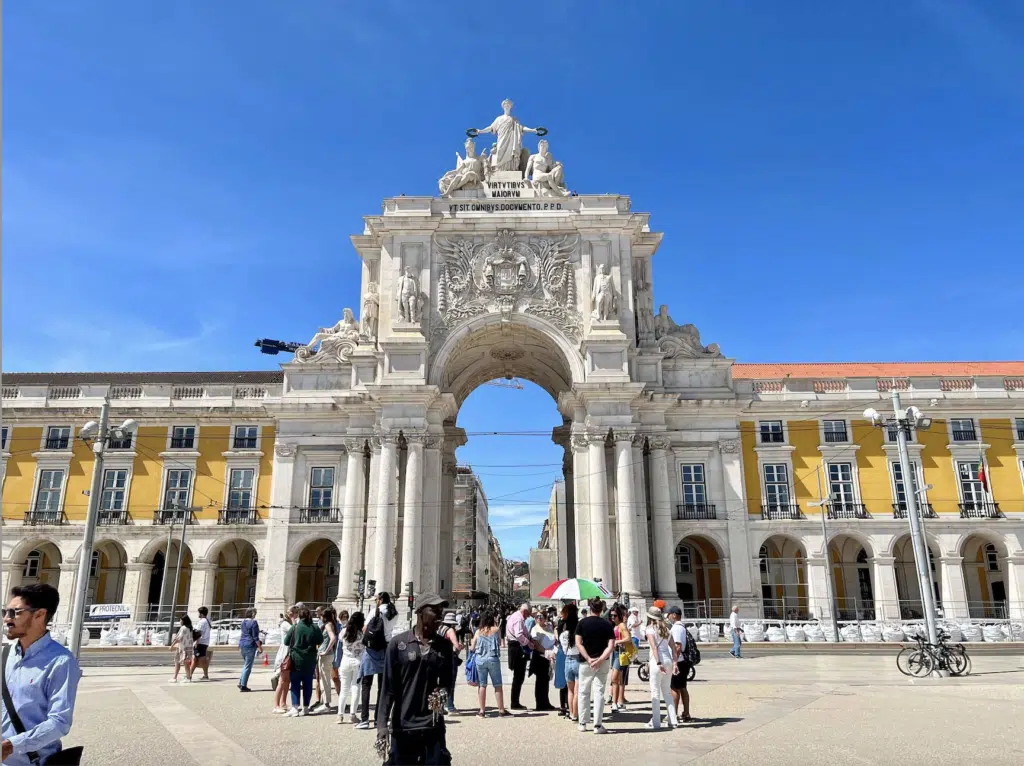
Plan your Trip to Portugal Wisely
This isn’t unique to Portugal, but it’s impossible to see everything the country has to offer in a week (especially if you’re working remotely like we did). If you have limited time, stick to 1-2 places. We stayed in Lisbon and the Algarve region.
Lisbon is a great starting point if you’ve never been to Portugal before. It has all things history, culture, and food in one place. Beyond that, Porto, Algarve, or the islands off the coast (the Azores and Madeira) are all great options to consider.
Also, time your visit wisely. It can be extremely hot in the summer, which can diminish your experience. Alternately, in the winter, it is very rainy in the Algarve region. If you want to go on a tour to harvest olive oil, that takes place in the fall. Aspiring sommeliers are going to want to spend a good amount of time in Porto. Balance weather and your planned activities with costs and your schedule to find the optimal time to travel.
Whenever you travel, it’s a good idea to check the holidays of that destination. We were in Lisbon on May 1, which is Labor Day in Portugal, so lots of shops were closed and some streets were blocked off for a race. That led to some challenges that may have been avoided with a quick Google search.
I Ran into Paid Toilets Less than in Other European Countries
The only place I ran into a paid toilet in 8 days in Portugal was at the lighthouse at Cabo de São Vincente (aka “The End of the World”). I didn’t even bother with that one, so every toilet I used in Portugal was free.
I’m sure paid toilets exist around the country, and I’d make sure to carry some change with you just in case. But the airport, accommodations, restaurants, tourist attractions, gas stations, and even the supermarket we stopped at in the middle of nowhere all had free bathrooms.
Now, the quality of those bathrooms is sometimes another story. Some didn’t have toilet seats, toilet paper, or paper towels. Others you had to throw toilet paper in a trash can because the septic system couldn’t handle it. There were also some without a place to wash your hands. I recommend bringing hand sanitizer with you (and maybe even travel sized toilet paper if you’re nervous).
Be Prepared for LOTS of Walking & Hills
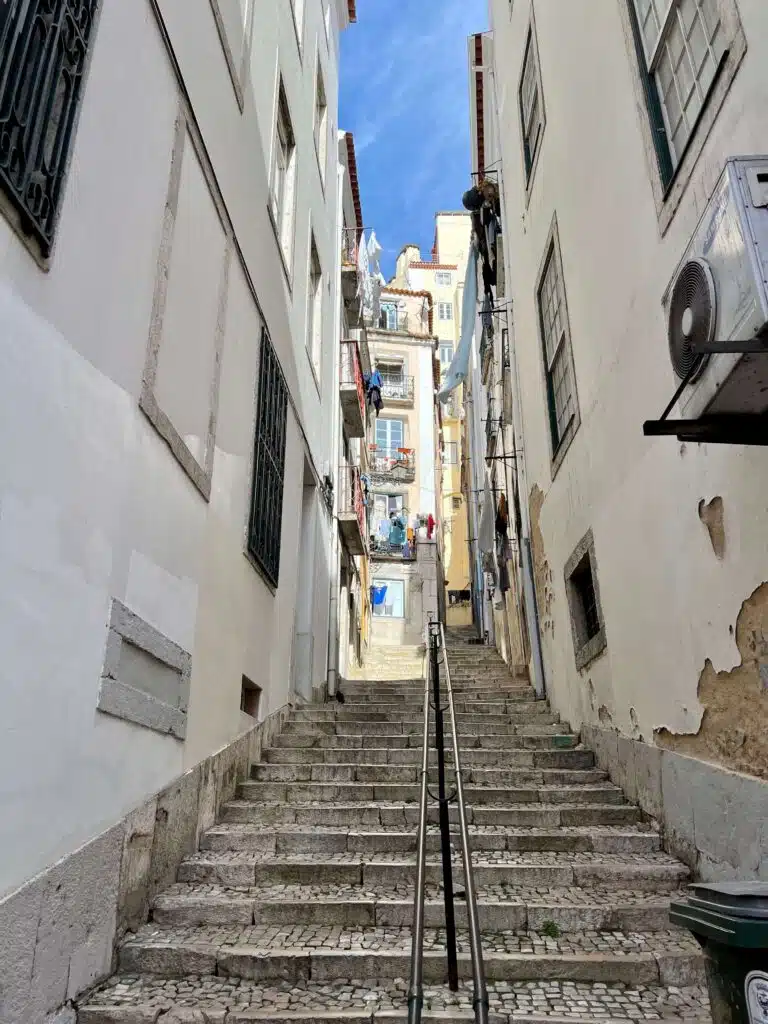
Lisbon is a city built on hills, so be prepared to walk up steep inclines and steps. We hit 20,000+ steps a day and 50+ flights of stairs several times on this trip. Make sure to pack your absolute most comfortable pair of shoes – your feet will thank you at the end of long days spent exploring.
There are some free public elevators in Lisbon, but many of them are hard to find. Someone in our group asked our guide how to find them and she joked that you need to know a local.
I’ve seen several people recommend only packing in large backpacks instead of bringing a roller bag. I am firmly team roller bag and didn’t find Portugal to be any more difficult to traverse with it than other major cities. As long as you can lift your bag to carry it up/down stairs and can drag it over old cobblestone streets dating back to the Roman Empire, you’re fine.
Overall Thoughts
Portugal is a fantastic country and I came away with such a great new appreciation and understanding for the nation and its role in global history. Travel helps you draw connections between seemingly unrelated parts of the world and visiting Portugal is a great example of this.
You may also like:

